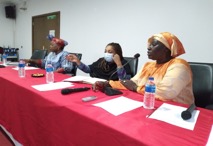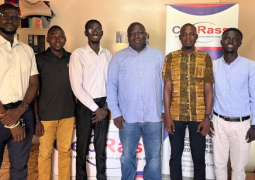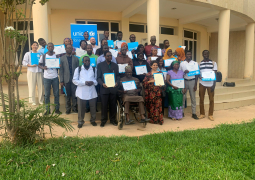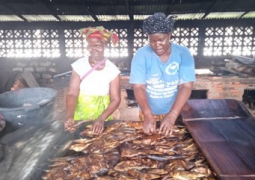
The forum, which was held at Metzy Hotel, brought together National Assembly members, Civil Society Organisations (CSOs) and the media.
Speaking at the ceremony, Lala Jaiteh-Ceesay, deputy permanent secretary at the Ministry of Gender, Children and Social Welfare, reminded that the UNSCR 1325 was adopted in 2000 to ensure that UN member states provide greater participation and representation of women in decision-making process within governance institutions, and within national and international conflict prevention management and resolution mechanisms.
“It was against this backdrop that all UN member states were required to develop a National Action Plan for implementation.”
DPS Ceesay recalled that 2015 saw the adoption of the UN Security Council Resolution calling for youths’ participation in conflict prevention and peace building through partnership and women involvement in preventing and countering violent extremism, terrorism among others.
“In December, the annual meeting in Abuja Nigeria, witnessed the inclusion of youths within the working groups for the implementation of the UNSCR 2050.”
The working group for women, youths and security in West Africa and the Sahel, she added, is a regional platform for the exchange, coordination and harmonisation of the action of the agencies and nations of the organisations of the UN, ECOWAS and Sahel.
Isatou De Sawaneh, chairperson of the National Women’s Council, said it was important to nurture the peace that the country is blessed with, saying in as much as ‘we have a lot of challenges, we still have peace in this country.’
She underscored the importance of peace, reminding that women and children are the most vulnerable when there are conflicts.
Neneh Tourary, deputy director at Women’s Bureau, said The Gambia developed its first Action Plan in 2012, which she said, concentrated on three major pillars: participation, protection and prevention.
“So after the implementation of the resolution of the National Action Plan for over ten years, we deem it necessary that we should review, because after the National Action Plan was developed, so many other resolutions were passed to come up with a new National Action Plan which is going to help in the implementation of the United Nations Security Council Resolution 1325.”





